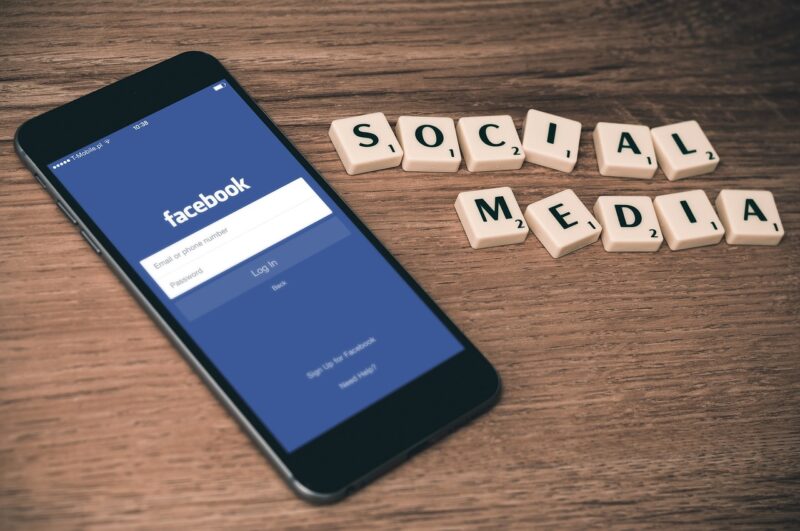Understanding the Brain’s Reward System: Why We’re Addicted to Social Media
November 14, 2024

In the age of digital connectivity, social media platforms have emerged as powerful tools that shape our daily lives. From Facebook and Instagram to Twitter and TikTok, these platforms not only serve as a medium for communication and entertainment, but they also trigger complex responses in our brains. At the very core of these responses lies the brain’s reward system, a set of neural structures responsible for processing pleasure and reinforcing behaviors.
Understanding how our brain reacts to social media is crucial for comprehending why we often feel compelled to scroll endlessly through feeds or constantly check our notifications. This article explores the intricacies of the brain’s reward system and examines how social media exploits these mechanisms to create addictive behaviors.
1. The Brain’s Reward System Explained
The reward system is a group of structures in the brain that are activated by rewarding stimuli. This includes food, sex, social interactions, and recently, online interactions. Here are some key components of this system:
- Dopamine: Often referred to as the “feel-good” neurotransmitter, dopamine is released during pleasurable activities, reinforcing behaviors that lead to reward. Whenever we receive likes, shares, or comments on posts, our brain releases dopamine, creating a sensation of pleasure and satisfaction.
- Nucleus Accumbens: This is the brain’s primary reward center. It plays a crucial role in the pleasure-reward circuit and is activated when we engage with rewarding stimuli, including social media interactions.
- Prefrontal Cortex: This region of the brain is involved in decision-making and impulse control. Over engagement with social media can lead to altered functioning in this area, affecting our decision-making abilities and increasing addictive tendencies.
These components work together to create a feedback loop that compels us to seek out more rewards from our online interactions.
2. The Psychological Triggers of Social Media Addiction
Social media platforms are meticulously designed to exploit the brain’s reward system. Here are some psychological triggers that enhance our engagement:
- Intermittent Rewards: Social media taps into the concept of variable rewards. Unlike predictable rewards, variable rewards—like a random like or comment—keep users returning for more, as the brain anticipates potential dopamine releases with each notification.
- Social Validation: Humans are inherently social beings. When we receive validation through likes and shares, our brain associates this affirmation with pleasure, encouraging us to post more and seek out additional validation.
- Fear of Missing Out (FOMO): The anxiety of potentially missing social events or trending topics compels users to stay engaged on their platforms. This anxiety activates the brain’s reward system, as users seek knowledge and connection to alleviate their fears.
These triggers create a cycle that can lead to habitual checking of social media platforms, reinforcing the addiction over time.
3. The Impact of Social Media Addiction on Mental Health
While social media can foster connections and creativity, its addictive nature and impact on mental health cannot be overlooked. Some consequences include:
- Anxiety and Depression: Excessive use of social media can lead to feelings of inadequacy and loneliness. The pursuit of validation through likes may create a skewed sense of self-worth, ultimately leading to anxiety and depressive symptoms.
- Decreased Attention Span: The constant barrage of notifications can result in diminished attention spans. Quick scrolling and mixing information increase the difficulty in sustaining focus on tasks, academically or personally.
- Sleep Disruption: Engaging with social media late into the night can disrupt sleep patterns. The blue light emitted from screens can interfere with melatonin production, leading to sleep deprivation, which contributes to anxiety and stress.
Recognizing these negative effects is crucial for individuals seeking balance and mental well-being in a digitally-driven world.
4. Strategies to Mitigate Social Media Addiction
While it’s challenging to completely disengage from social media, there are practical strategies to mitigate its addictive nature:
- Set Time Limits: Establish specific times for social media use. Apps are available to monitor and limit usage, ensuring that it does not encroach on daily responsibilities or personal time.
- Cultivate Offline Connections: Invest time in physical interactions with friends and family. Building real-life relationships can reduce reliance on social media for validation and connection.
- Engage in Mindfulness Practices: Mindfulness meditation can strengthen self-awareness and help individuals recognize when they’re reaching for their devices out of habit rather than genuine interest. This habit awareness is the first step in breaking the cycle of addiction.
Taking proactive steps allows individuals to regain control over their relationship with social media and balance its presence in their lives.
5. The Future of Social Media and Mental Health
As technology evolves, social media platforms are likely to become increasingly engaging, pushing the boundaries of our reward systems further. Awareness and education about the addictive potential of these platforms will be essential in shaping healthier usage patterns.
Combating social media addiction requires collective efforts from users, educators, and platform designers. Initiatives that promote digital well-being, such as in-app reminders, usage reports, and features that encourage breaks, may help curb addictive tendencies and encourage users to engage thoughtfully.
In conclusion, while the brain’s reward system can explain our proclivity towards social media, understanding this dynamic enables us to navigate our use mindfully. By remaining aware of the psychological triggers at play and actively seeking balance, we can enjoy the benefits of connectivity without falling into the traps of addiction.
Conclusion
As we advance further into the digital age, the intersection of technology and mental health must be at the forefront of societal discussions. Knowing how social media affects our brain and behavior can empower individuals to create healthier online habits. By fostering awareness and promoting real-life connections, we can navigate the complexities of our digital world while prioritizing our mental health and well-being.







